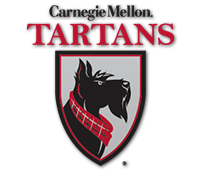
From Kansas City Star/By Vahe Gregorian
In 16 years at Washington University in St. Louis, Jeff Stile has coached hundreds of Type A, hyper-motivated student-athletes from all over the galaxy in cross country and track at a school that might wait-list you with a 36 ACT.
Even among this accomplished group, Stiles says Deko Ricketts of The Barstow School has distinguished himself as a face of the campus.
It’s not just that the senior is the NCAA Division III 800-meter indoor champion who on Friday will begin competition in the outdoor nationals in Ohio aiming for another national title.
It’s also that he is an exemplary student and teammate and mentor and entrepreneur who, well, intends to help solve the global energy crisis through the use of solar power.
“Hopefully,” Stiles said, “you’re writing a book.”
If you were, maybe the first chapter would start with those times Ricketts and his three older siblings didn’t have power in their home.
“A lot of people don’t know what it’s like to not have electricity,” he said.
It wasn’t for lack of trying.
His single mother, Nia Becker, often worked two nursing jobs as she invested every fiber of herself to provide a middle-class existence for them and let them know there was an abundance waiting in the world.
When there wasn’t enough to eat, she didn’t so they could.
A LOT OF PEOPLE DON’T KNOW WHAT IT’S LIKE TO NOT HAVE ELECTRICITY.
Once, a patient in a mental health unit attacked her during an overnight shift. Ricketts picked her up and convinced her it was time to change jobs … even if there might be some financial flux with that.
So, sometimes she just couldn’t pay the utilities on time.
But Ricketts knew it was noble work she did and that everything else in his life has emanated from her nurturing and sacrifice.
“My mom is just one of the biggest heroes in my life,” he said.
And maybe not having at times is why he is so cognizant of helping others now.
“The biggest thing I want to achieve is to get to a position where I can sort of give solar power to third world countries,” said Ricketts, who last week earned his degree in electrical engineering and whose internship at Azumith Energy morphed into a job. “I’m actually working on a project in Jamaica right now.”
Her father earning a bachelor’s degree from Columbia University before working for his M.D. at Howard University on his way to becoming a pioneering figure:
In the mid-1960s, he became part of one of the first African-American group practices in the Kansas City area, family history says, and the first African-American appointed to teach at the University of Kansas School of Medicine.
“He was raised in the heart of the Harlem Renaissance, exposed to cultures of art and jazz,” it says in his obituary, and maybe all of this helps account some for the absurd variety of talent in the family that includes so much medicine and dance and music.
Moreover, he left this when he died last July:
“Grandpa taught us to always carry a moral compass,” Ricketts said at his funeral. “A certain set of guidelines that you adhere to — you don’t deviate. You do this because it makes every step that you take that much more powerful. You have direction, and without direction, you’re lost. …
“I would spend the better part of my childhood designing the compass.”
Another place a book might start, though, is the moment Ricketts lost his compass — or at least put it aside for a moment.
It was his sophomore year at Barstow, which he and two of his elder siblings had been able to attend because of their mother’s will, scholarships and occasional anonymous assistance.
Also, it was because of the brilliant mind that his mother had envisioned when her youngest child was born with such a large head that it just had to mean he’d be very smart.
In other words, it took and meant everything.
Then one knucklehead moment — “reckless, stupid, complete disregard for any type of risk,” as he puts it now — almost snuffed it all out.
One Friday night, Ricketts and a few of his friends who called each other “The Bros” lit matches in the chemistry lab, the latest in an escalating series of pranks.
I FELT LIKE I JUST LOST EVERYTHING. IT WAS ALL HITTING ME, HOW MANY PEOPLE I LET DOWN, HOW REAL IT WAS.
Deko Ricketts on the fallout of lighting matches in the chemistry lab at The Barstow School during his sophomore year
This risky episode, though, was different.
The group was suspended immediately and threatened with expulsion, and Ricketts suddenly was “freaked out” with anxiety about his future.
“I felt like I just lost everything,” he said. “It was all hitting me, how many people I let down, how real it was.”
His mother hadn’t seen him cry since he was a baby, but now was left just to hold him as cried and cried.
But Barstow granted him and the others what we all need and not everyone gets: another chance.
Shane Foster, head of school, could not be reached for comment. But according to Ricketts and his mother, a meeting with him resulted in being told that trust had been lost and asking what Ricketts planned to do about it.
Most of all, Deko wanted to demonstrate this wasn’t an indication of character but a lapse in judgment.
He resolved “to be great in what I do from now on” and vowed to become the “best person Barstow has ever seen.”
So he sent a letter of apology to all his teachers and excelled in the classroom and got into student government and started clubs and took honors Chinese and Japanese and did too many other good things to mention.
“His touch is still felt by the students at Barstow today,” said Kellye Crockett, the school’s director of admission, marketing and communications.
In hindsight, Ricketts wishes he hadn’t strayed and needed to be scared straight.
Just the same …
“I definitely think I needed it,” he said. “I feel like if that didn’t happen, then something worse maybe would have.”
The attitude, of course, also applied in cross country and track.
The boy who used to run with his arms held behind his back as he pondered a way to actually fly found his earth-bound wings in his quest for redemption.
He had been a relative natural before then, for instance winning the first mile race he ever took part in at school.
HIS TOUCH IS STILL FELT BY THE STUDENTS AT BARSTOW TODAY.
Kellye Crockett, the school’s director of admission, marketing and communications, on Ricketts
But he knew that getting to compete again for Barstow was a reprieve and a gift.
So he seized advantage of it by pouring himself into it and winning the state 1600 as a junior.
As a senior, he won the state cross country meet and set the Missouri Class 2 record in the 800.
Next thing you know, he’s a standout in every way at one the nation’s pre-eminent academic institutions and already starting to make good on the “50-year-plan” he wrote during his junior year at Barstow.
When he visited Washington, he felt a shiver down his spine that the people standing around him were going to change the world, he told the audience as he made the keynote speech as a scholarship recipient in 2015.
Then thanked the Eliot Society for its generosity.
“For that,” he said, “I owe you a better world.”
A debt he seems intent on paying.
Vahe Gregorian: @vgregorian























